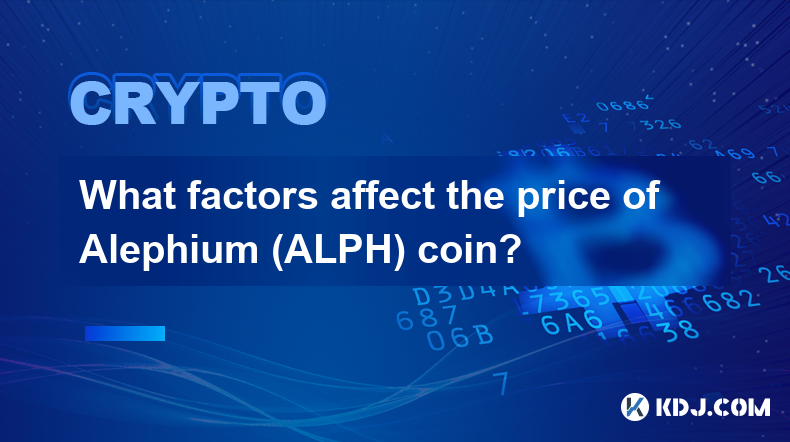-
 Bitcoin
Bitcoin $106,754.6083
1.33% -
 Ethereum
Ethereum $2,625.8249
3.80% -
 Tether USDt
Tether USDt $1.0001
-0.03% -
 XRP
XRP $2.1891
1.67% -
 BNB
BNB $654.5220
0.66% -
 Solana
Solana $156.9428
7.28% -
 USDC
USDC $0.9998
0.00% -
 Dogecoin
Dogecoin $0.1780
1.14% -
 TRON
TRON $0.2706
-0.16% -
 Cardano
Cardano $0.6470
2.77% -
 Hyperliquid
Hyperliquid $44.6467
10.24% -
 Sui
Sui $3.1128
3.86% -
 Bitcoin Cash
Bitcoin Cash $455.7646
3.00% -
 Chainlink
Chainlink $13.6858
4.08% -
 UNUS SED LEO
UNUS SED LEO $9.2682
0.21% -
 Avalanche
Avalanche $19.7433
3.79% -
 Stellar
Stellar $0.2616
1.64% -
 Toncoin
Toncoin $3.0222
2.19% -
 Shiba Inu
Shiba Inu $0.0...01220
1.49% -
 Hedera
Hedera $0.1580
2.75% -
 Litecoin
Litecoin $87.4964
2.29% -
 Polkadot
Polkadot $3.8958
3.05% -
 Ethena USDe
Ethena USDe $1.0000
-0.04% -
 Monero
Monero $317.2263
0.26% -
 Bitget Token
Bitget Token $4.5985
1.68% -
 Dai
Dai $0.9999
0.00% -
 Pepe
Pepe $0.0...01140
2.44% -
 Uniswap
Uniswap $7.6065
5.29% -
 Pi
Pi $0.6042
-2.00% -
 Aave
Aave $289.6343
6.02%
What factors affect the price of Alephium (ALPH) coin?
Market conditions, including interest rate changes and economic growth, can significantly influence the price of ALPH coins due to their impact on investor risk appetite.
Dec 23, 2024 at 05:49 pm

Key Points
- Market Conditions: Influence from macroeconomic factors, including interest rates, inflation, and economic growth.
- Supply and Demand: Fluctuations in the supply and demand of ALPH coins can impact its price.
- Token Economics: The issuance rate of new coins, the burning of existing coins, and the overall tokenomics of Alephium affect its value.
- Use Cases and Adoption: As Alephium gains adoption and its use cases expand, the demand for ALPH coins may increase.
- Speculation and Trading: Market sentiment, news, and speculation can influence short-term price movements.
- Regulatory Environment: Government regulations and regulatory shifts can impact the price of cryptocurrencies, including ALPH.
- Competition: The performance of competing cryptocurrencies and the emergence of new projects can affect ALPH's value.
Factors Affecting Alephium (ALPH) Coin Price
Market Conditions
The broader macroeconomic environment can significantly influence the price of ALPH coins. Factors such as interest rate changes, inflation, and economic growth can impact the overall appetite for risk in the market. When interest rates rise, investors may move away from risky assets like cryptocurrencies. Conversely, when the economy is performing well and inflation is low, investors may be more inclined to invest in cryptocurrencies.
Supply and Demand
The supply of ALPH coins is determined by the issuance rate of new coins and the burning of existing coins. If the issuance rate is high, the supply of ALPH coins increases, which may put downward pressure on the price. Conversely, if the burning rate is high, the supply decreases, potentially leading to an increase in price. Additionally, changes in the demand for ALPH coins can affect its price. As adoption increases and the demand for ALPH coins grows, the price may rise.
Token Economics
The token economics of Alephium plays a crucial role in determining the value of ALPH coins. Factors such as the total supply, distribution of coins, and the utility of the coin impact its price. A token with a high total supply may face downward pressure on its price, while a token with a limited supply may be more valuable. The distribution of coins can also affect the price, with a large concentration of coins held by a few individuals potentially leading to price manipulation.
Use Cases and Adoption
The practical utility of Alephium and the adoption of its use cases can significantly impact the price of ALPH coins. As developers build applications and services on the Alephium platform, the demand for ALPH will likely increase, leading to a potential rise in its price. Conversely, if Alephium fails to gain adoption and its use cases remain limited, the demand for ALPH coins may decrease, negatively affecting its price.
Speculation and Trading
Speculation and short-term trading can also drive the price of ALPH coins. When there is positive news or expectations about the future of Alephium, traders may buy ALPH coins in anticipation of a price increase. Conversely, when there is negative news or uncertainty about the future, traders may sell their ALPH coins, leading to a potential price decline.
Regulatory Environment
Government regulations and regulatory shifts can significantly impact the price of ALPH coins. If governments impose strict regulations on cryptocurrency trading or exchanges, the demand for ALPH coins may decrease, leading to a potential drop in its price
Disclaimer:info@kdj.com
The information provided is not trading advice. kdj.com does not assume any responsibility for any investments made based on the information provided in this article. Cryptocurrencies are highly volatile and it is highly recommended that you invest with caution after thorough research!
If you believe that the content used on this website infringes your copyright, please contact us immediately (info@kdj.com) and we will delete it promptly.
- KuCoin Lists Namada (NAM) with Token Reward GemPool: A Deep Dive
- 2025-06-19 14:25:12
- Laser Drivers, Coin Cells, and Rangefinders: A New Era of Compact Power
- 2025-06-19 14:44:15
- Crypto Updates: FxWirePro's Key Insights into Tokenization and Regulation
- 2025-06-19 15:05:13
- Bitcoin Price: Uncertain Rise Amidst New Highs and Political Plays
- 2025-06-19 15:25:12
- Shiba Inu Price Prediction & Inflows: Whale Moves Signal Potential Shift?
- 2025-06-19 16:05:12
- Altcoin Season Delayed? Analysts Eye Rate Cuts for Crypto's Next Big Move
- 2025-06-19 16:05:12
Related knowledge

How to customize USDT TRC20 mining fees? Flexible adjustment tutorial
Jun 13,2025 at 01:42am
Understanding USDT TRC20 Mining FeesMining fees on the TRON (TRC20) network are essential for processing transactions. Unlike Bitcoin or Ethereum, where miners directly validate transactions, TRON uses a delegated proof-of-stake (DPoS) mechanism. However, users still need to pay bandwidth and energy fees, which are collectively referred to as 'mining fe...

USDT TRC20 transaction is stuck? Solution summary
Jun 14,2025 at 11:15pm
Understanding USDT TRC20 TransactionsWhen users mention that a USDT TRC20 transaction is stuck, they typically refer to a situation where the transfer of Tether (USDT) on the TRON blockchain has not been confirmed for an extended period. This issue may arise due to various reasons such as network congestion, insufficient transaction fees, or wallet-rela...

How to cancel USDT TRC20 unconfirmed transactions? Operation guide
Jun 13,2025 at 11:01pm
Understanding USDT TRC20 Unconfirmed TransactionsWhen dealing with USDT TRC20 transactions, it’s crucial to understand what an unconfirmed transaction means. An unconfirmed transaction is one that has been broadcasted to the blockchain network but hasn’t yet been included in a block. This typically occurs due to low transaction fees or network congestio...

What to do if USDT TRC20 transfers are congested? Speed up trading skills
Jun 13,2025 at 09:56am
Understanding USDT TRC20 Transfer CongestionWhen transferring USDT TRC20, users may occasionally experience delays or congestion. This typically occurs due to network overload on the TRON blockchain, which hosts the TRC20 version of Tether. Unlike the ERC20 variant (which runs on Ethereum), TRC20 transactions are generally faster and cheaper, but during...

The relationship between USDT TRC20 and TRON chain: technical background analysis
Jun 12,2025 at 01:28pm
What is USDT TRC20?USDT TRC20 refers to the Tether (USDT) token issued on the TRON blockchain using the TRC-20 standard. Unlike the more commonly known ERC-20 version of USDT (which runs on Ethereum), the TRC-20 variant leverages the TRON network's infrastructure for faster and cheaper transactions. The emergence of this version came as part of Tether’s...

How to monitor large USDT TRC20 transfers? Tracking tool recommendation
Jun 12,2025 at 06:49pm
Understanding USDT TRC20 TransfersTether (USDT) is one of the most widely used stablecoins in the cryptocurrency ecosystem. It exists on multiple blockchains, including TRON (TRC20). The TRC20 version of USDT operates on the TRON network and offers faster transaction speeds and lower fees compared to its ERC-20 counterpart on Ethereum. When discussing l...

How to customize USDT TRC20 mining fees? Flexible adjustment tutorial
Jun 13,2025 at 01:42am
Understanding USDT TRC20 Mining FeesMining fees on the TRON (TRC20) network are essential for processing transactions. Unlike Bitcoin or Ethereum, where miners directly validate transactions, TRON uses a delegated proof-of-stake (DPoS) mechanism. However, users still need to pay bandwidth and energy fees, which are collectively referred to as 'mining fe...

USDT TRC20 transaction is stuck? Solution summary
Jun 14,2025 at 11:15pm
Understanding USDT TRC20 TransactionsWhen users mention that a USDT TRC20 transaction is stuck, they typically refer to a situation where the transfer of Tether (USDT) on the TRON blockchain has not been confirmed for an extended period. This issue may arise due to various reasons such as network congestion, insufficient transaction fees, or wallet-rela...

How to cancel USDT TRC20 unconfirmed transactions? Operation guide
Jun 13,2025 at 11:01pm
Understanding USDT TRC20 Unconfirmed TransactionsWhen dealing with USDT TRC20 transactions, it’s crucial to understand what an unconfirmed transaction means. An unconfirmed transaction is one that has been broadcasted to the blockchain network but hasn’t yet been included in a block. This typically occurs due to low transaction fees or network congestio...

What to do if USDT TRC20 transfers are congested? Speed up trading skills
Jun 13,2025 at 09:56am
Understanding USDT TRC20 Transfer CongestionWhen transferring USDT TRC20, users may occasionally experience delays or congestion. This typically occurs due to network overload on the TRON blockchain, which hosts the TRC20 version of Tether. Unlike the ERC20 variant (which runs on Ethereum), TRC20 transactions are generally faster and cheaper, but during...

The relationship between USDT TRC20 and TRON chain: technical background analysis
Jun 12,2025 at 01:28pm
What is USDT TRC20?USDT TRC20 refers to the Tether (USDT) token issued on the TRON blockchain using the TRC-20 standard. Unlike the more commonly known ERC-20 version of USDT (which runs on Ethereum), the TRC-20 variant leverages the TRON network's infrastructure for faster and cheaper transactions. The emergence of this version came as part of Tether’s...

How to monitor large USDT TRC20 transfers? Tracking tool recommendation
Jun 12,2025 at 06:49pm
Understanding USDT TRC20 TransfersTether (USDT) is one of the most widely used stablecoins in the cryptocurrency ecosystem. It exists on multiple blockchains, including TRON (TRC20). The TRC20 version of USDT operates on the TRON network and offers faster transaction speeds and lower fees compared to its ERC-20 counterpart on Ethereum. When discussing l...
See all articles

























































































